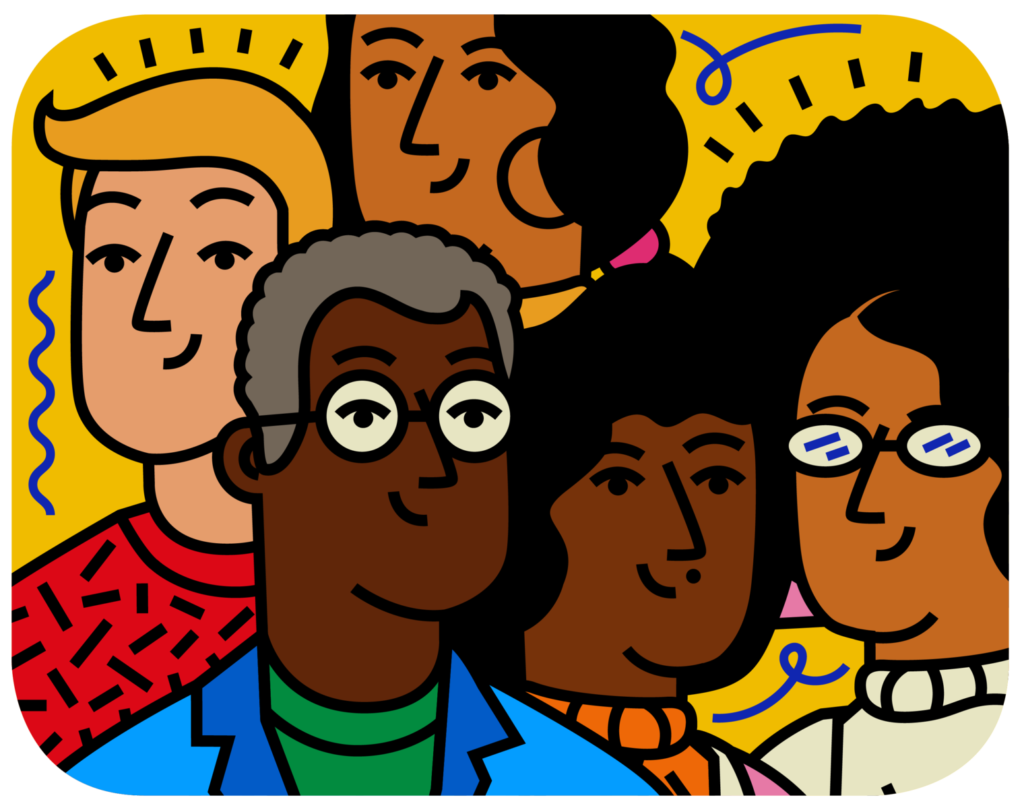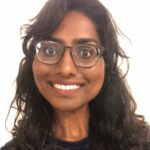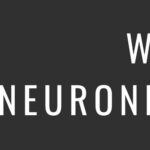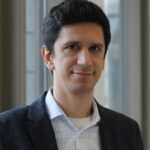A version of this essay was submitted to the St. Gallen Global Essay Competition 2021 on the topic of “Trust Matters” and placed among the top 100 contributors worldwide.
Early one January morning, I hurried out of bed and dashed to the front curb, worried that I would be late to take out my garbage and recycling in time for the collectors. Still in my pajamas with unbrushed teeth and hair, I hadn’t noticed a woman nearby rummaging through my neighbours’ recycling bags to collect bottles for consignment. She approached me to ask for any refundable bottles from my bag. Suppressing my discomfort at the idea of a stranger examining my waste, I opened my bag to allow her to investigate. She sparked a conversation about her distrust of the COVID-19 vaccine and warned me to avoid it at all costs. When I asked her why, she replied that the government had implanted a tracking device in the vaccine so that they could monitor us at all times. She told me that since we had never needed this vaccine before, it is suspicious for the government to insist on it now. I was so completely dumbfounded that I hardly knew how to respond.
Later that day I reflected on this encounter and regretted not further engaging with the woman. Could I, a scientist studying human psychology, have convinced her to change her views? I eventually concluded that no amount of research can outweigh the value of directly engaging with community members. Unlike an academic audience with shared presuppositions, community members have been exposed to unvetted information, some guised as authoritative knowledge despite lacking any recognized standard of credibility. This sometimes leads to trust being put in the wrong places, with sources that appeal to peoples’ fears and emotions outcompeting those that promote hard facts.
Throughout the pandemic, the consequences of societal distrust in science have proliferated in the form of noncompliance with public health regulations, and the spread of misinformation (1). As individuals are isolated more than ever, the current COVID-19 climate has created increased mental distress and paranoia, which can exacerbate skepticism and hostility towards scientists and health authorities (2,3). To repair societal distrust in science, it is essential to consider the societal trauma caused by the pandemic. I therefore propose a strategy to integrate science communication with relevant stakeholders for a successful PhD completion. This community-based strategy will repair the social roots of eroded trust in science and restore public confidence in evidence-based research. I first discuss the sources of distrust in science and challenges for repairing trust, followed by my proposal for scientists’ systemic community engagement to enhance trust in science.
The diverse sources of distrust in science
Societal trust is defined as a sense of communal fairness, transparency, truth, and a feeling that leaders care for community members (4). In today’s society, however, science is sometimes seen as an opinion, which can be discarded if it is inconsistent with one’s worldview. With the ubiquity of social media, people can spread misinformation 10 times faster and further than true information (5). Although there are common factors for fostering trust in individuals and institutions (demonstrating honesty, competence, and reliability), distrust can manifest from many different reasons that can spur further harmful misconceptions.
There are several reasons for distrust in science particularly, which can range from mixed messaging during times of crisis to a rooted history of distrusting medical professionals. One prominent instance of mixed messaging relates to the use of masks at the beginning of the pandemic. Many governments worldwide initially communicated that masks were not mandatory, or even useful, for protecting against the virus. It was later discovered that this message was delivered to prevent the public from hoarding masks when hospitals needed them the most. Would it have been better to be transparent and tell people that wearing homemade masks can also slow virus transmission? Either way, this example is indicative of scientists’ and administrators’ distrust of citizens to abide by their recommendations, prompting the public to distrust the authorities in turn.
Many communities are reluctant to trust science because of its regrettable history of unethical experimentation on human subjects. History is tainted with examples of science having harmed vulnerable populations. People diagnosed with mental illness have been subjected to botched lobotomies (6), African Americans were forced to participate in the Tuskegee syphilis study (7), and Jewish civilians were captured and tortured by the Nazis for ethnic cleansing in the name of science (8), to name a few horrifying examples that devastated millions. Even with the implementation of rigorous ethical guidelines in the 90s to prioritize the safety of participants, scientific practices can still elicit general distrust of research findings. For example, the dominant model of the white heterosexual male has been the gold standard for understanding human behaviour and is often erroneously applied to other demographics. Consequently, our knowledge of human behaviour serves a fraction of our diverse society. Why should marginalized communities adhere to scientific recommendations if they feel that science does not serve or represent them?
Challenges for rebuilding trust in science
A consequence of distrust is that people tend to retreat to what they perceive as safe and familiar: their own echo chambers, within which their opinions are amplified by the expediency and reach of social media. These echo chambers often produce a patchwork of communities whose members share similar identities, whether of political affiliation, race/ethnicity, or religion; lines along which they segregate themselves. While reinforcing shared identities, platforms such as Twitter and Facebook hinder authentic relationships by solidifying the boundaries that divide us versus them. Yet, research demonstrates that diversity is vital for long-term cultural, economic, and developmental benefits integral for societal wellbeing and progress (9,10).
Building authentic communities in the real world is a challenge now more than ever, with the pandemic’s physical limits to social interactions hindering people to bring their individual complexities, which is also critical for meaningful engagement. To repair the erosion of trust in science, scientists must create a space where people feel that their voices are heard and their reasons for distrust are understood. We cannot expect adherence to public health regulations until we understand peoples’ reluctance towards them. No matter the specific reason for their distrust, worries about the compromise or destruction of individual freedom is central to many peoples’ concerns. Perhaps more important than disproving false beliefs is for scientists to develop the tools to engage the public in a way that validates their life experience while upholding the values of critical thinking for society as a whole.
While gently encouraging community members to leave their echo chambers, scientists must also recognize that we also have to leave our own. Jargon-heavy communications often insulate scientists within their own specializations and builds more barriers against the public by reinforcing the perception of scientists as inaccessible authority figures. Science communication with the community must therefore emphasize the delivery of complex ideas simply and clearly with the stakeholders’ background in mind. But in order to encourage community members to voice their concerns, scientists must first disarm themselves.
The solution: Taking off the white coat
If people distrust the source of the information (i.e., “science”), scientists should collaborate with trustworthy community leaders and faith organizations to restore confidence in health information and compliance with public health guidelines. In the 2014-2015 Ebola crisis, West Africans complied with health recommendations when community locals and social mobilizers raised awareness of public health misconceptions (11). Coordinating engagement efforts with religious and political leaders can repair trust in science, particularly when religiosity and political ideology are strongly associated with unfounded skepticism towards science. However, academia pressures scientists to publish in elite journals rather than engage with the public. The publish or perish culture means that researchers often lack the resources, or essential training to effectively communicate their research to diverse audiences (12).
Thus, I propose to help repair the public’s eroded trust by incorporating science communication with relevant stakeholders as a mandatory component for the successful completion of a PhD, demonstrating commitment to building trusting relationships with public sectors. Graduate students should leverage their expertise and collaborate with scholars in and outside of their specialization to maximize the impact of knowledge exchange and discover creative approaches to translate research to the community in tangible ways. The proposal will leverage the existing diversity within graduate student populations to reach wider audiences. For example, public engagement with community groups in which students have existing affiliations, such as religious or cultural organizations, would enable them to scaffold on the common values of these trusted institutions. However scholars choose to engage with the public, community feedback should guide their process and enable them to tailor their ideas to specific audiences. Integrating this requirement in the thesis process also invites active feedback from the student’s committee members and will inspire university stakeholders to provide the time and training for more impactful science dissemination. Importantly, documentation of systemic public engagement in one’s thesis provides accountability – a key component for repairing trust – and reinforces the commitment to scientific dissemination and community building.
Through systemic public engagement, graduate scholars will not just educate their audience but also learn from their experiences and knowledge of the world, which the thesis can integrate to highlight their role as collaborators and stakeholders rather than merely benefactors of the research. Receiving feedback from diverse audiences can strengthen the scientific community by integrating a full spectrum of ideas and experiences that could advance the frontiers of scientific research. Ultimately, by engaging with diverse sectors of society, scientists can foster a culture in which community voices are heard and promote greater trust in evidence-based principles that guide progressive decision-making.
Long-term impact: A citizen-scientist dialectic
Reciprocal public engagement is critical for people to see scientists as members of the community. When scientists go out into the public, community members are more likely to trust them, not because they wear a white coat and hold a PhD, but because they recognize a person who shares the same faith, political affiliation, or other relationship-binding commonalities. When the public sees the people behind the scientific institutions they are reluctant to trust, they will come to understand that, just like them, these complex individuals belong to multiple communities, sometimes contrary to popular views. Despite the stereotypes of right-wing anti-maskers versus anti-faith scientists, no individual is a monolith. Religious believers can be scientists and scientists can be religious. By taking the first step to breach our own echo chambers, we scientists can highlight our common ground with our audiences, allowing them to reciprocate and further blur the lines that isolate us from society.
Central to my proposal is the courage to build connections that engage in a diversified and critical discourse while emphasizing the importance of reciprocity for building trust. Community trust in scientific expertise better equips the public to distinguish information from misinformation, thus bringing the broader community, scientists and laypeople alike, to the table with similar presuppositions, despite their diverse opinions. Young scientists benefit from working with diverse stakeholders by expanding their skills and learning about alternative paths outside academia. In turn, more inclusive representation among publicly active scientists can inspire young marginalized community members to pursue scientific careers after seeing their diversity reflected and can also motivate previously hesitant minority groups to participate in research.
Conclusion
This proposal requires that scientists show vulnerability, an essential component for reciprocity. Scientists are constantly on a knowledge-seeking journey, which can be conveyed through humility in our public discourse. Saying “I don’t know” can be liberating for scientists and the public alike and can break barriers to build greater trust and social cooperation. By normalizing ‘what we do not know,’ we no longer fear uncertainty but bravely engage with it and allow others to follow suit. Instead of venerating academia as untouchable, and detached from the rest of the world, we must emphasize the importance of trust in a changing world.
I still think about what I could have said to engage with the woman on my street who shared her distrust for the COVID-19 vaccine. I could have asked where she got her information, but would that question have provoked her resentment? It has since dawned on me that this complete stranger cared enough about me, a fellow stranger, to warn me that I shouldn’t take the vaccine. Was it my simple gesture of sharing my recycling bag that earned her trust? We were both out in the real world with no screens to hide behind. In that conversation, she saw me as another human being, not as a scientist. She did not want to shut me down, and I could sense the compassion emanating through her words. That is the place where real dialogue can happen.
Sivaniya Subramaniapillai completed her PhD in Experimental Psychology at McGill University in 2021. Her research aims to characterize brain-aging trajectories of women and men and understanding the lifestyle factors that contribute to healthy aging. Sivaniya is excited about fostering scientific dialogue between the research community and the public in a way that promotes greater inclusivity and public engagement. To sign up to her personal newsletter, please visit http://sivaniya.beehiiv.com/.






